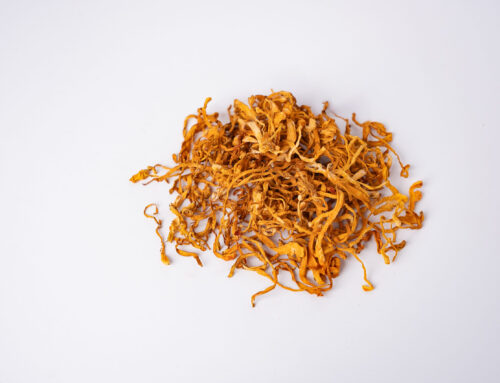Sight is a spectacular sense. Vibrant colours and crisp visions illuminate your world every day. Yet, your lifestyle may be setting your eyes up for failure and you may not even know that it’s happening! Here’s everything you need to know about glaucoma and seeing well into your future.
What is glaucoma?
Inside your eyes, there is an optic nerve. The optic nerve is a bundle of more than 1 million nerve fibers. That optic nerve is important as it connects your retina (detects light) to your brain. A healthy optic nerve is necessary for good vision. If there is a build-up of fluid pressure inside your eye, it can affect your optic nerve.
What happens if you have glaucoma?
As pressure continues to deteriorate the optic nerve, blind spots can start to appear in your vision. Eventually, the nerve can become so damaged that blindness occurs. Glaucoma is the second most common cause of vision loss in elderly Canadians, according to the Canadian National Institute of the Blind, and more prevalent in people over the age of 60. Those at greater risk of developing glaucoma include those with a family history, have had an eye injury, take corticosteroid medications, or have medical conditions such as high blood pressure, diabetes, heart disease or sickle cell anemia.
What are early signs of glaucoma?
Actually, it’s hard to tell if you are developing glaucoma. Since changes in the health of your eyes are gradual, you may not even notice it. Some early symptoms of glaucoma can include: patchy blind spots, tunnel vision, blurred vision, halos around lights, severe headache, eye pain or redness. Regular eye exams that include measurements of your eye pressure is the best way to detect glaucoma at its early stages. If glaucoma is recognized early, any vision loss can be slowed or prevented.
Can glaucoma be stopped?
The vision loss due to glaucoma cannot be recovered. However, there are many features of a healthy lifestyle that may prevent this disease. For example, exercising may help prevent glaucoma by reducing eye pressure. Also, what you eat plays a major role in eye health.
What foods are good for glaucoma?
Eat your fruits (and veggies)! Women who ate 3 or more servings of fruit a day, and at least one serving of collard greens or kale a week, had a lower risk of glaucoma, according to research published in the American Journal of Ophthalmology. After further analyzing the dietary intake surveys from the 662 women in the study, the researchers noted of most help to the eyes were foods that contain vitamin C, beta-carotene, folate, lutein and zeaxanthin. Foods rich in these nutrients include: kiwis, raspberries, carrots, leafy greens (lettuce, kale, spinach, broccoli), red and yellow peppers, legumes, asparagus, beets, and egg yolks.
Interestingly, in the Rotterdam Study, researchers found that a diet low in vitamin E and vitamin B1 may increase one’s risk of glaucoma. As such, you may want to reach for more servings of swiss chard, almonds, raw seeds, legumes and peas as these are great sources of these nutrients.
Vitamin D3 appears to reduce pressure in the eye, thus protecting against the damaging effects of glaucoma. It may do this by effecting how genes are expressed in the eye. More clinical trials are needed to determine at what dosage vitamin D is most helpful. However, if you live north of the 49th parallel, you’ll agree that your skin’s exposure to sunlight is very limited underneath the parkas and toques you frequently wear. As such, your ability to create vitamin D from sunlight is very limited. Since vitamin D is not easily found in your diet (some small amounts in mushrooms and fortified milk), supplementation may be needed.
Have you eaten fish lately? Eating more fish (or taking an EPA+DHA supplement) may offer some preventative effects. Some evidence points to an imbalance between omega-3 and omega-6 intake and a greater risk of glaucoma. In addition, reduce your intake of processed foods (high in omega-6), such as salad dressings and crackers.
As for that cup of coffee you may regularly enjoy, it might be worth cutting back. The Blue Mountains Eye Study found higher pressure inside the eyes of people who consumed coffee regularly. If you are a tea drinker, take pride in knowing the flavonoids you are consuming offer some eye health protection. However, research is scarce as to how much tea affects the eye.
Natural remedies for glaucoma
CoQ10 may offer potential benefits against glaucoma, according to research completed at the Hamilton Glaucoma Center and Department of Ophthalmology at the University of California. CoQ10 is not commonly consumed in high amounts in Canadian diets, warranting a look at supplementation. One of the most well studied natural remedies for eye health is bilberry. Its helpfulness in the battle against age-related macular degeneration is well established. However, whether it helps prevent damage related to glaucoma is not yet clear.
Spectacular vision is possible! It starts with a whole food diet (and supplements where needed). And, be sure to take your peepers to an ophthalmologist for regular visits, as early detection of any elevations in your eyes internal pressure can help prevent vision loss.
References:
The role of diet in glaucoma: a review of the current evidence. Ophthalmol Ther 2018 Jun;7(1):19-31.
Lifestyle, Nutrition and Glaucoma. J Glaucoma 2009 Aug; 18(6):423-428.







amazing tips that everybody need. i love reading this and very easy to understand. your tips are great. thakyou for sharing